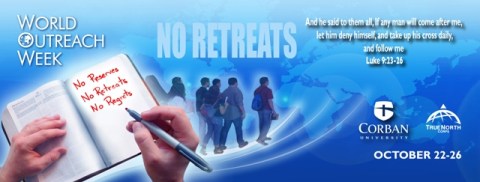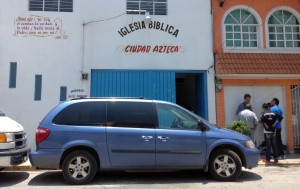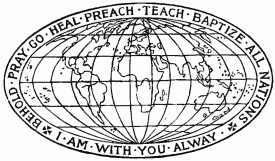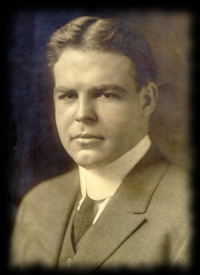
Our very own Samuel Valtierra designed the banner above for World Outreach Week at Corban University in Oregon.
Our very own Tina Barham took the photos, and people from our church are the “walkers” in the background, led by visitor Stephen Predtechenskis.
And the hands are – well, my very own.
And I wrote the words – No Reserves, No Retreats, No Regrets.
My first hand modelling job. Something to add to my resume.
Now the words themselves are actually credited to William Whiting Borden. So I thought I’d write a bit about Borden, in today’s and tomorrow’s posts. And those who have taken my 2000 Years of Missions seminar will recognize a lot of the background of this story.
Actually, there’s a bit of a mystery behind those words – but I’ll get to that tomorrow.
Chicago 1887
In 1887, Chicago was a hangout for many of the world’s richest. The Armours were making a fortune in meat packing. And, actually, my great-grandfather was an Amour, living in Chicago at the age of 17. The connection between the two Armour families remains uncertain.
Also making a fortune were the Bordens. While the Armours preserved meat, the Bordens preserved milk. The New York Condensed Milk Company was expanding around the country.
The company would later become the Borden Company, a familiar fixture in North America and beyond. (Actually, although the company itself no longer exists, a part of it is still going as the LALA Foods – we buy our milk from them and still see ads with the Borden cow Elsie.)
Gail Borden, the founder, was gone. But his family continued to run the company. And one of his sons, William Borden and his wife Mary, were expecting their third son.
William Whiting Borden was born on the 1st of November 1887, in Chicago. (Yes, Whiting was his mother’s maiden name. My great-grandfather, William Findley Armour, also of Chicago, suffered the same fate!).
New Life among the Bordens
7 years later, William’s mother Mary came to Christ. She started attending Chicago Avenue Church, a mega-church of thousands at the time, which would become Moody Church. The pastor was R.A. Torrey.
Under Torrey’s preaching, William himself came to know the Lord.
In 1904, at the age of 16, William graduated from high school. His reward, a gift from his parents, was a trip around the world. By this time, he had a growing interest in missions. In fact, part of the purpose of his trip was to visit missionaries. Travelling with Rev. Walter Eerdman, he visited missionaries in various places, including China.
William at Yale
In 1905 William headed to Yale to get an education. He listened to the president, Arthur Twining Hadley, speak to the students about the need to “have a fixed purpose”.
William was discouraged at what he heard and saw, writing:
He neglected to say what our purpose should be, and where we should get the ability to persevere and the strength to resist temptations.
Morality without Christ? What could be done? Well, Borden didn’t waste any time. In the first semester, he started a prayer meeting. At first, it was just Bill and a friend, meeting before breakfast.
By the end of the year, 150 students were praying together.
Student Volunteer Movement
In 1906, Borden went to Nashville to attend the 5th International Convention of the Student Volunteer Movement for Foreign Missions. One of the speakers there would change William’s life forever.
The SVM started just a year after William was born, and had grown considerably. The goal of the organization was to encourage students to consider missions as a career. Students who wanted to become missionaries would commit themselves by signing cards. Only 3 years after the movement began, 321 new missionaries had already sailed overseas. And it had grown since then.
Samuel Marinus Zwemer is a name few know now, but in the first half of the 20th century he was downright famous. He lived in the Middle East for most of 38 years, but wrote and spoke frequently. At the time, he was living in the USA, about 38 years old, and working for the Arabian Mission. Today Zwemer is remembered as the Apostle to Islam. He had a huge part in introducing the West to the needs in the Islamic world.
In one of his speeches at the convention, he spoke passionately:
Of course it will cost life. It is not an expedition of ease nor a picnic excursion to which you are called… the man who asks the question, whether any Christians have lost their lives in preaching the Gospel of Christ to the Moslems, asks a wiser question than he knows. It is going to cost many a life; and not only lives, but prayers and tears and blood. That is where Jesus calls us, and the very leadership of this movement is a leadership of suffering.
Zwemer believed that there were 30 million Muslims in China alone, with no one to share the Gospel with them in Arabic. (Others estimated the numbers to be closer to 5 or 10 million. Today, there are likely over 20 million Muslims in China.)
Borden returned to school with a renewed passion. He and his friends Charlie and Jeff split the class between them (a class of about 900), planning to get to know their classmates with the goal of introducing them to Christ. Of course, Bill chose the people no one else dared to reach.
Borden was also looking to the future. He was seriously thinking about going to China with the China Inland Mission (today OMF International).
Along with a group interested in reaching out even more, he rented a room in a rough neighbourhood in order to reach those no one else was reaching. Eventually, not lacking cash, he purchased a whole building, helping to start the Yale Hope Mission.
By his fourth year at Yale, it was obvious that something was afoot. Over a thousand students now attended the prayer meetings that had started so humbly. And Bill was not only involved in Christian work, but regular campus life, and lots of athletics.
Princeton
Princeton was next for Borden, and life was busier than ever. His father had died a few years earlier, and his mother Mary hadn’t been well. She came to live at Princeton as well, along with Borden’s younger sister.
Family and financial responsibilities, school, and of course his outreach work continued. His interest in work in Islamic areas, particularly in China, continued to grow. He was even made a trustee of the Moody Bible Institute.
But he was still looking to the future – and still thinking about China. In 1910, that desire would solidify during a trip to Edinburgh, Scotland.
To be continued tomorrow!









